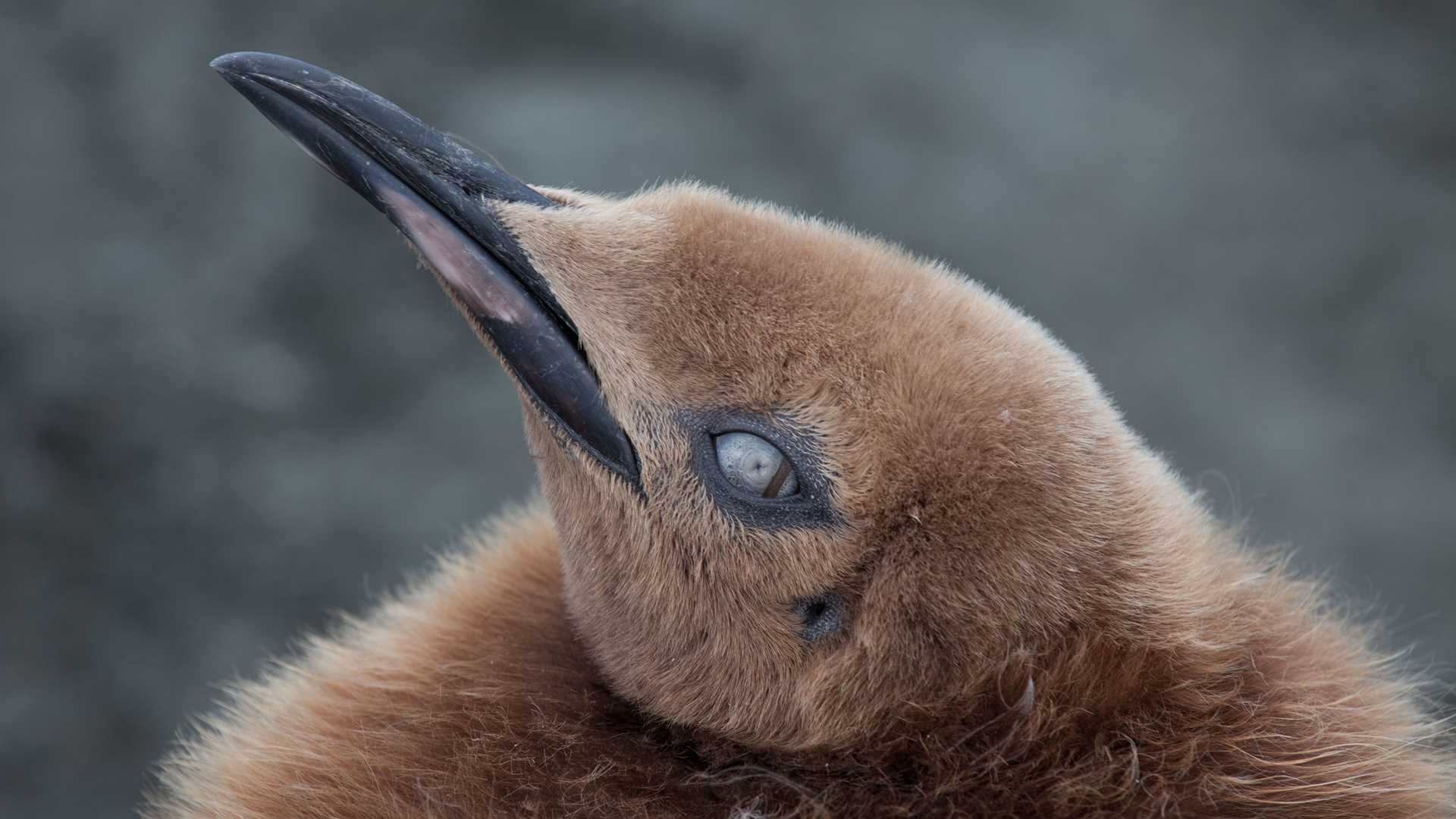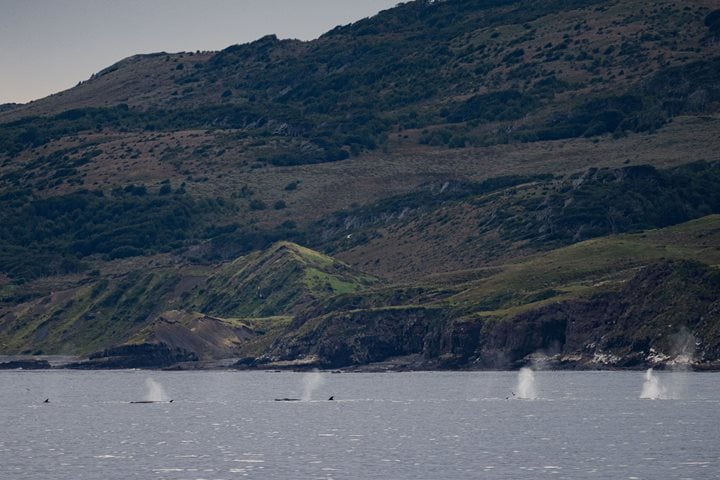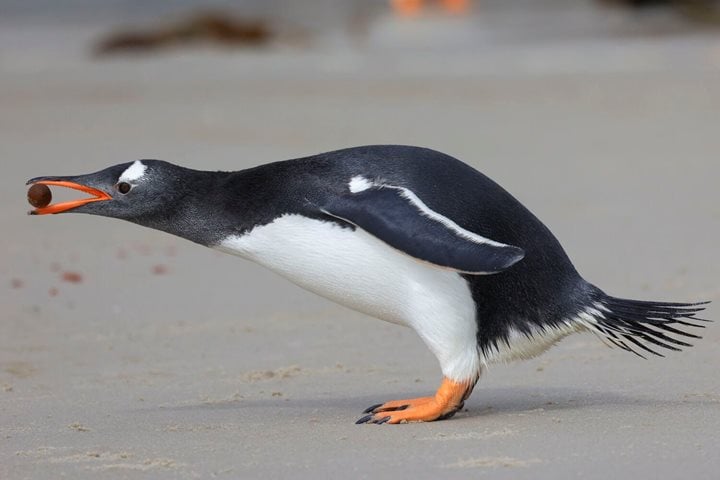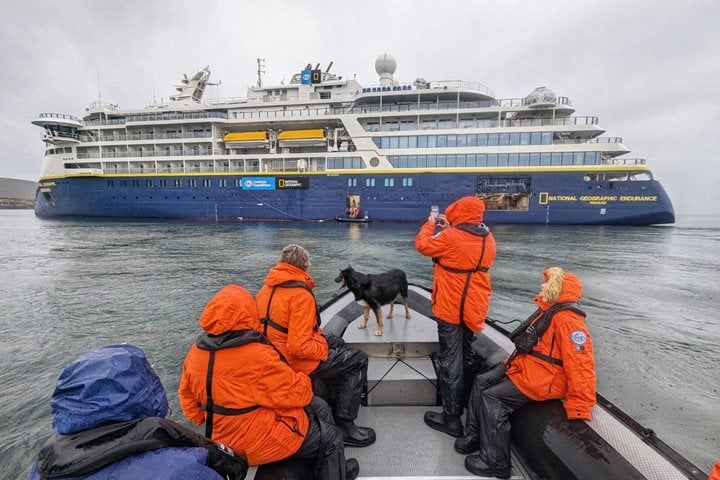The last morning in South Georgia led National Geographic Orion to Gold Harbour for an early morning landing. Dawn patrol offers the guests the opportunity to view the incredible swath of wildlife available on this island in the early morning golden light. The natural history staff cruised ashore at 5:00 a.m., set up a landing and prepared for guests. The guests began heading to shore at 5:30 for a pre-breakfast jaunt in the wild. Gold Harbour is regarded by many as one of the most beautiful visitor sites. King penguins, gentoos, elephant seals, and fur seals jostle for space on this extensive beach, ever more beautiful in the morning light. Breeding elephant seals, young pups, and molting penguins are some of the consistent sights here at Gold Harbour. The elephant seals are particularly adorable in their youth with their massive eyes and chubby bodies. Those eyes are ridiculously cute, but also serve an important purpose. Elephant seals are extreme deep divers, able to reach depths of nearly two miles in one single dive. They can hold their breath for an hour and a half (remember, they are air-breathing mammals) by shunting the oxygen into their myoglobin rich muscle. The beautiful big eyes that draw visitors in exhibit tiny pinhole pupils while on land. Deep down in the dark ocean, however, these small pupils expand to take up the entire ocular space. The ability to take in only a tiny amount of light, but in great quantities, allows them to see well enough to hunt their favorite meal of squid at depth.
The afternoon led the expedition to Cooper Bay, at the southeast extremity of the island. It lays on a south-facing coast, and is buffered from heavy sea activity by Cooper Island. There is a plethora of wildlife here, and the ship’s guests got to peruse the scenery by small boat, Zodiac cruising in and amongst the animals. Light-mantled albatross soared ahead in coordinated flying pairs, while macaroni penguins spend their time hopping from rock to rock. This is the largest breeding colony of chinstrap penguins on the island, a species which will become much more frequent in the coming days.
After our last outing on the phenomenal island of South Georgia, National Geographic Orion heaved anchor and prepared to steam south towards the Antarctic Peninsula and our ultimate destination.







